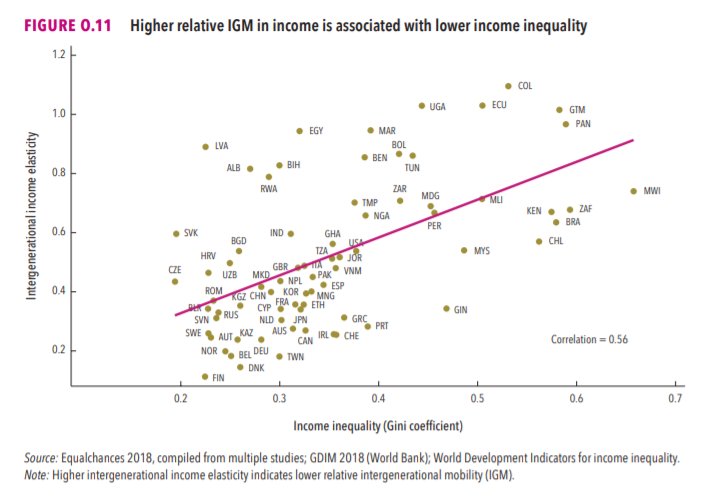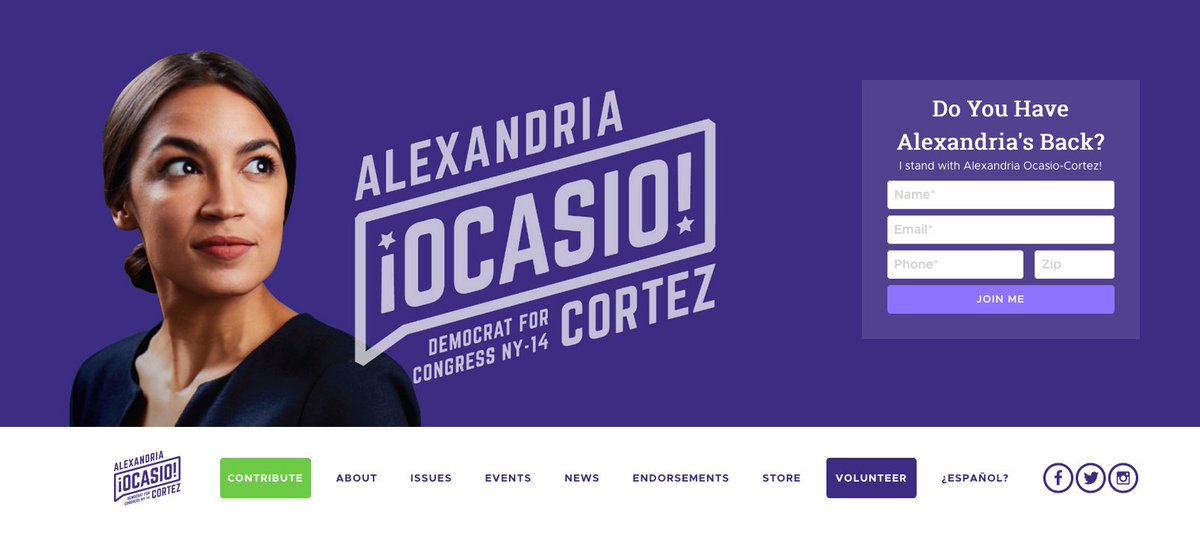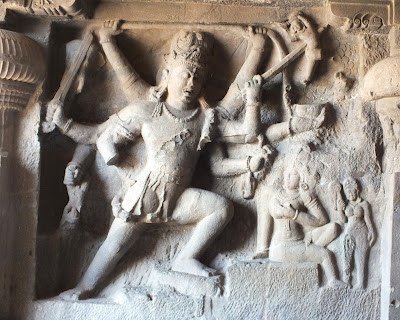Met a Brazilian-American Lyft driver from San Diego who passionately attacked the racism of Republicans, then switched to passionately defending Bolsonaro.
If I were Thomas Friedman, I could tell you what this means.
More from Noah Smith
To be honest, I think this is just the effect of Twitter.
If you're on Twitter all the time - as every political commentator now is - it's easy to think that whiny, big-talking Twitter slacktivists are "the Dems".
But what's happening out there on the ground?
This is another reason I think Twitter is so bad for society.
It convinces intellectuals and commentators that practically everyone who's on their side is an extremist.
Which makes them tolerate extremism out of a (false) feeling of necessity.
If you stay on Twitter too much (which we all do now), you start to think that the typical left-of-center person is some British wanker who quote-tweets "Imagine thinking this" to anyone who doesn't like the idea of "ending capitalism".
But he is not typical.
A majority of Americans are not on Twitter.
But *every* journalist, commentator, and intellectual *has* to be on Twitter.
So every journalist, commentator, and intellectual comes face to face with big-talking slacktivist faux-extremists day in and day out.
It's a problem!!
Online bubbles full of shouty faux-extremists are, in general, fine.
The difference is that every journalist, commentator, and intellectual is essentially forced to exist in THIS bubble, because their jobs require it.
Twitter is a dystopian technology.
(end)
If you're on Twitter all the time - as every political commentator now is - it's easy to think that whiny, big-talking Twitter slacktivists are "the Dems".
But what's happening out there on the ground?
— VeryHiddenGeniusHat (@Popehat) October 18, 2018
This is another reason I think Twitter is so bad for society.
It convinces intellectuals and commentators that practically everyone who's on their side is an extremist.
Which makes them tolerate extremism out of a (false) feeling of necessity.
If you stay on Twitter too much (which we all do now), you start to think that the typical left-of-center person is some British wanker who quote-tweets "Imagine thinking this" to anyone who doesn't like the idea of "ending capitalism".
But he is not typical.
A majority of Americans are not on Twitter.
But *every* journalist, commentator, and intellectual *has* to be on Twitter.
So every journalist, commentator, and intellectual comes face to face with big-talking slacktivist faux-extremists day in and day out.
It's a problem!!
Online bubbles full of shouty faux-extremists are, in general, fine.
The difference is that every journalist, commentator, and intellectual is essentially forced to exist in THIS bubble, because their jobs require it.
Twitter is a dystopian technology.
(end)
Time for panel #3: Big Tech and regulation!
I will be live-tweeting again, and you can also watch video at either the Twitter or Facebook links below!
Kaissar: Every industry gets regulated when it gets big. The question is what kind of regulation Big Tech will get,and whether the companies will be proactive in shaping it.
Kaissar: More profitable companies have higher returns. Why? Maybe it's a risk factor, because more profit = higher risk of getting regulated.
Bershidskyis showing a diagram of GDPR complaince pop-ups. What a massive ill-conceived bureaucratic mess.
Ritholtz: It's 2018 and we're still talking about Facebook privacy settings?! If you're still giving your personal data to Facebook, you just don't care about privacy!
I will be live-tweeting again, and you can also watch video at either the Twitter or Facebook links below!
Bloomberg Ideas conference now starting! I will be live-tweeting it. You can watch on our Facebook or Twitter pages (links below)! https://t.co/Mbr9dZzWBy
— Noah Smith (@Noahpinion) October 25, 2018
Kaissar: Every industry gets regulated when it gets big. The question is what kind of regulation Big Tech will get,and whether the companies will be proactive in shaping it.
Kaissar: More profitable companies have higher returns. Why? Maybe it's a risk factor, because more profit = higher risk of getting regulated.
Bershidskyis showing a diagram of GDPR complaince pop-ups. What a massive ill-conceived bureaucratic mess.
Ritholtz: It's 2018 and we're still talking about Facebook privacy settings?! If you're still giving your personal data to Facebook, you just don't care about privacy!
1/OK, data mystery time.
This New York Times feature shows China with a Gini Index of less than 30, which would make it more equal than Canada, France, or the Netherlands. https://t.co/g3Sv6DZTDE
That's weird. Income inequality in China is legendary.
Let's check this number.
2/The New York Times cites the World Bank's recent report, "Fair Progress? Economic Mobility across Generations Around the World".
The report is available here:
3/The World Bank report has a graph in which it appears to show the same value for China's Gini - under 0.3.
The graph cites the World Development Indicators as its source for the income inequality data.

4/The World Development Indicators are available at the World Bank's website.
Here's the Gini index: https://t.co/MvylQzpX6A
It looks as if the latest estimate for China's Gini is 42.2.
That estimate is from 2012.
5/A Gini of 42.2 would put China in the same neighborhood as the U.S., whose Gini was estimated at 41 in 2013.
I can't find the <30 number anywhere. The only other estimate in the tables for China is from 2008, when it was estimated at 42.8.
This New York Times feature shows China with a Gini Index of less than 30, which would make it more equal than Canada, France, or the Netherlands. https://t.co/g3Sv6DZTDE
That's weird. Income inequality in China is legendary.
Let's check this number.
2/The New York Times cites the World Bank's recent report, "Fair Progress? Economic Mobility across Generations Around the World".
The report is available here:
3/The World Bank report has a graph in which it appears to show the same value for China's Gini - under 0.3.
The graph cites the World Development Indicators as its source for the income inequality data.

4/The World Development Indicators are available at the World Bank's website.
Here's the Gini index: https://t.co/MvylQzpX6A
It looks as if the latest estimate for China's Gini is 42.2.
That estimate is from 2012.
5/A Gini of 42.2 would put China in the same neighborhood as the U.S., whose Gini was estimated at 41 in 2013.
I can't find the <30 number anywhere. The only other estimate in the tables for China is from 2008, when it was estimated at 42.8.
More from Politics
I think a plausible explanation is that whatever Corbyn says or does, his critics will denounce - no matter how much hypocrisy it necessitates.
Corbyn opposes the exploitation of foreign sweatshop-workers - Labour MPs complain he's like Nigel
He speaks up in defence of migrants - Labour MPs whinge that he's not listening to the public's very real concerns about immigration:
He's wrong to prioritise Labour Party members over the public:
He's wrong to prioritise the public over Labour Party
One of the oddest features of the Labour tax row is how raising allowances, which the media allowed the LDs to describe as progressive (in spite of evidence to contrary) through the coalition years, is now seen by everyone as very right wing
— Tom Clark (@prospect_clark) November 2, 2018
Corbyn opposes the exploitation of foreign sweatshop-workers - Labour MPs complain he's like Nigel
He speaks up in defence of migrants - Labour MPs whinge that he's not listening to the public's very real concerns about immigration:
He's wrong to prioritise Labour Party members over the public:
He's wrong to prioritise the public over Labour Party
For a few weeks I’ve been wondering about Alexandria Ocasio-Cortez and just how she emerged as a politico. Her path to Washington is shocking, at the very least. My first question was: What were her campaign positions BEFORE she became a national figure?
1/
So I went to her campaign website and took that web address and looked through the internet archive. When I went back to 2017, it was not her website, it belonged to the group "Brand New Congress."
2/
Here's what the web address https://t.co/Uhz2q4Dpll looks like now:
3/

Here's what the same web address looked like in late 2017:
4/

What's “Brand New Congress?” BNC is a group of Bernie Sanders staffers who got together, decided to make the 2018 midterms all about Bernie policies by taking his ideas & finding 400 Bernie carbon copies to dump into Congressional & other races, creating a 400 headed Bernie.
5/
1/
So I went to her campaign website and took that web address and looked through the internet archive. When I went back to 2017, it was not her website, it belonged to the group "Brand New Congress."
2/
Here's what the web address https://t.co/Uhz2q4Dpll looks like now:
3/

Here's what the same web address looked like in late 2017:
4/

What's “Brand New Congress?” BNC is a group of Bernie Sanders staffers who got together, decided to make the 2018 midterms all about Bernie policies by taking his ideas & finding 400 Bernie carbon copies to dump into Congressional & other races, creating a 400 headed Bernie.
5/



















